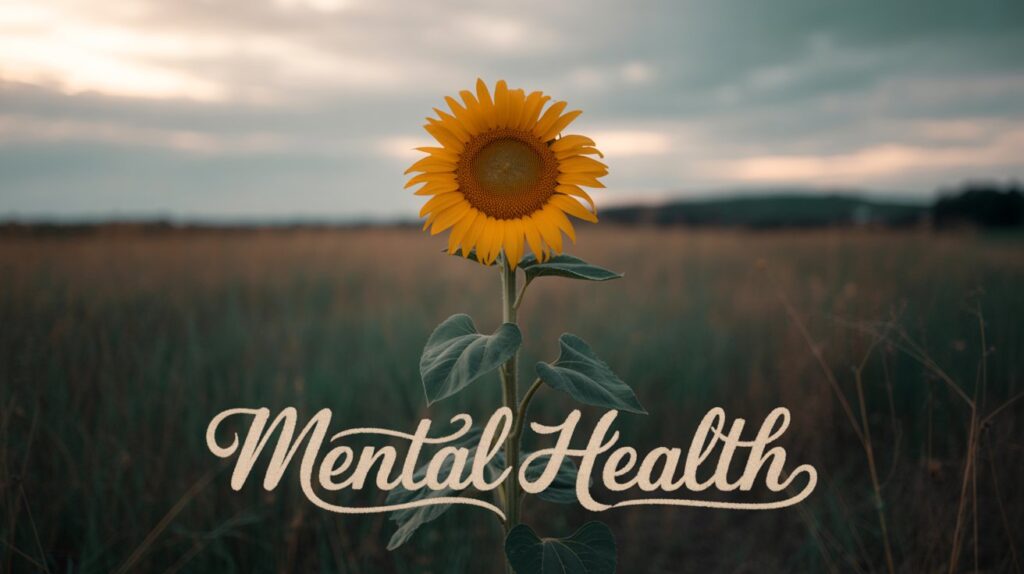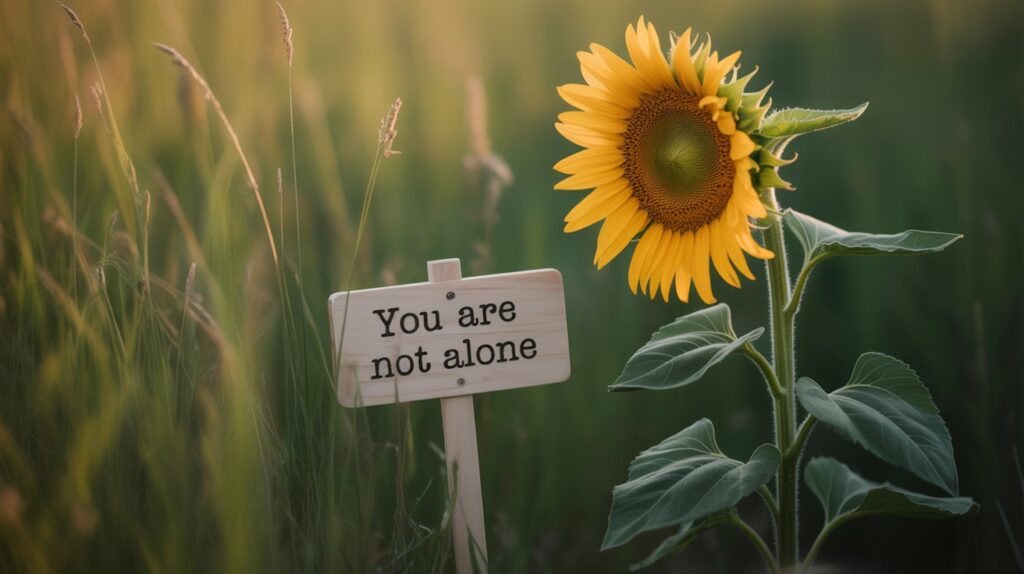
A Global Leap for Mental Health: WHO Launches Game-Changing Support Manual
The Silent Struggle, The Loud Solution
The global landscape of mental health presents a stark reality: a pervasive and often hidden struggle affecting millions worldwide. Despite the widespread need, access to quality mental health care remains a significant challenge. A sobering statistic highlights this critical gap: only 3% of individuals living with depression in low- and middle-income countries receive treatment.1 This figure underscores a profound global inequity and a massive humanitarian challenge in mental health care access, revealing a widespread systemic failure that demands urgent attention. The World Health Organization (WHO) recognizes this immense unmet need and is actively working to address this critical issue, positioning its actions as a necessary and strategic intervention against widespread human suffering.
In a significant stride towards bridging this gap, the World Health Organization (WHO), in partnership with UNICEF, published a groundbreaking new training manual on July 11, 2025.1 This foundational helping skills training manual is designed to equip a broad spectrum of individuals—not just highly specialized clinicians—to deliver effective and safe support to adults experiencing mental health and psychosocial needs.1 This initiative marks a pivotal moment, empowering everyday individuals to become vital contributors to mental well-being globally.
(Picture 1 Suggestion: An image representing the “global mental health gap.” This could be a symbolic illustration of diverse individuals looking isolated or thoughtful, or a world map with areas highlighted to signify unmet need. The aim is to evoke empathy and establish the problem visually.)
Why Now? Bridging the Global Mental Health Gap
The timing of this manual’s release is no coincidence; it directly addresses a persistent global crisis: the severe shortage of well-trained mental health workers worldwide. This scarcity acts as a major barrier, preventing countless individuals from receiving the care they desperately need.1 As Dévora Kestel, Director a.i., WHO Department of NCDs and Mental Health, aptly stated, “Millions of people cannot access quality mental health care because there simply aren’t enough trained specialists. Strengthening foundational helping skills among non-specialists can help close this gap”.1 This authoritative perspective reinforces the strategic importance of empowering a wider network of helpers.
This new manual is not an isolated effort but represents a targeted and refined evolution of the WHO’s long-term strategy. It builds directly on the proven framework of the Mental Health Gap Action Programme (mhGAP), which the WHO launched in 2008.3 The mhGAP program was established with the ambitious aim of scaling up services for mental, neurological, and substance use disorders, particularly in low- and lower-middle-income countries.3 Over fifteen years and through several iterations, mhGAP has been extensively applied and studied in over 100 countries, demonstrating its transformative potential in scaling mental health services by training non-specialists and volunteers, even proving useful in high-income countries as a foundation for educating mental health volunteers.3
The new Foundational Helping Skills manual is thus a crucial, standardized next step in this broader, ongoing global strategy. Its development reflects a well-thought-out, iterative approach to a complex global problem, demonstrating that the WHO is continuously learning and adapting its strategies to maximize impact in scaling mental health support. This sustained, evidence-based effort assures that the manual is part of a larger, proven framework for addressing global mental health challenges, systematically working to close the care gap by refining its tools and approaches over time.
The Heart of the Manual: Simple Skills, Profound Impact

At its core, the new WHO manual focuses on “foundational helping skills”—universal human communication and support abilities that are essential for effective interaction.1 These are not complex clinical interventions but rather fundamental interpersonal competencies. The manual structures these skills into three intuitive tiers: “Engage,” “Understand,” and “Support,” providing a clear and logical pathway for learning.4
The Engage Tier equips helpers with the initial steps to connect with someone in need. This includes skills such as active listening, non-verbal and verbal communication, building rapport and trust, and ensuring confidentiality.4 Crucially, this tier also covers the ability to assess risk for self-harm or suicide and to promote safety.4 The explicit inclusion of assessing risk for self-harm/suicide and promoting safety as a core “Engage” tier skill for non-specialists is a critical safety mechanism. This demonstrates that the manual goes beyond basic communication to equip helpers with the immediate ability to identify and respond to severe risks, thereby preventing potential harm and ensuring responsible care.
The Understand Tier focuses on helping individuals articulate their problems, comprehending the impact of their challenges on daily life, and providing clear, helpful psychoeducation—information about mental health conditions and coping strategies.4 This tier also guides helpers on involving a family member or other trusted person when appropriate and consented.4
Finally, the Support Tier involves collaborative goal-setting, actively promoting hope for positive change, and effectively eliciting feedback to ensure the support provided is helpful and tailored to the individual’s needs.4 Skills such as “promoting hope for change” and “collaborative goal-setting” signify a vital shift in approach from merely addressing deficits to actively fostering resilience, agency, and active participation from the individual receiving support. This is crucial for sustainable recovery and overall well-being, moving beyond a purely reactive crisis intervention model. These foundational skills are vital to prevent “ineffective, or even harmful, care” by non-specialists, highlighting the manual’s unwavering commitment to safety and quality.1
The following table provides a clear overview of the 15 foundational helping skills outlined in the manual, grouped by their respective tiers:
Table: The 15 Foundational Helping Skills
| Tier | Foundational Helping Skill | Brief Description |
| Engage | Non-verbal communication | Using body language, eye contact, and gestures to show attentiveness and understanding. |
| Verbal communication | Using clear, concise, and appropriate language to convey messages effectively. | |
| Rapport-building | Establishing a trusting and comfortable connection with the individual. | |
| Confidentiality | Maintaining privacy and trust by protecting shared information. | |
| Empathy | Understanding and sharing the feelings of another person. | |
| Exploring and normalizing feelings | Helping individuals express their emotions and validating their experiences as common. | |
| Assess risk for self-harm/suicide and promoting safety | Identifying signs of immediate danger and taking steps to ensure the individual’s safety. | |
| Understand | Explanation of the problem | Helping individuals articulate and understand the nature of their challenges. |
| Impact on daily life | Exploring how mental health challenges affect an individual’s everyday activities and relationships. | |
| Coping strategies | Guiding individuals to identify and use effective ways to manage stress and difficulties. | |
| Involving a family member or other trusted person | Facilitating support from an individual’s personal network when appropriate and consented. | |
| Psychoeducation | Providing clear, accessible information about mental health conditions and well-being. | |
| Support | Collaborative goal-setting | Working together with individuals to define achievable goals for their well-being. |
| Promoting hope for change | Instilling a sense of optimism and belief in the possibility of improvement and recovery. | |
| Eliciting feedback | Actively seeking input from individuals to ensure support is helpful and tailored to their needs. |
(Picture 2 Suggestion: An image depicting diverse individuals (e.g., a teacher interacting with a student, a community worker talking to a resident, a volunteer listening to someone) interacting supportively in everyday settings. This visually represents the “non-specialist helpers” and the broad target audience of the manual.)
How It Works: Training for Real-World Effectiveness
The innovative methodology behind the WHO Foundational Helping Skills manual ensures that the training is not merely theoretical but leads to tangible, effective support in real-world scenarios. The manual employs an “evidence-based, competency-based approach”.1 This means the training focuses on observable behaviors and measurable skills, ensuring that trainees genuinely master the abilities required for their helping roles.
Central to this methodology is the ENACT tool (ENhancing Assessment of Common Therapeutic factors), a standardized and validated assessment instrument.4 ENACT helps trainers identify and score both helpful and unhelpful behaviors demonstrated during structured role-plays, ensuring consistent and objective evaluation of competency.4 The system assesses competency across four levels: Level 1 indicates any unhelpful or potentially harmful behavior; Level 2 signifies some, but not all, basic skills with no unhelpful behaviors; Level 3 represents mastery of all basic helping skills without unhelpful behaviors; and Level 4 denotes all basic helping skills plus at least one advanced helping behavior, with no unhelpful behaviors.4 This rigorous system ensures a high baseline quality of care and helps pinpoint specific areas for improvement.
The systematic review of mental health training programs for non-mental health professionals noted that such training often leads to only “short-term change in behavior”.5 The WHO manual’s rigorous, competency-based approach, coupled with the ENACT tool, directly addresses this known limitation. By focusing on observable behaviors, structured assessment, and personalized, objective feedback, the WHO manual aims for sustained, measurable competency, ensuring long-term impact and effective care. The training heavily incorporates “multiple role-plays” throughout its modules and for final assessment, providing crucial hands-on practice. This practical experience is complemented by “personalized and objective feedback” from trainers, who focus on areas of strength before addressing areas for improvement, thereby building trainee confidence and practical ability.4
A key strength of the manual lies in its “modular aspect,” allowing it to be “flexibly adapted across health, social care, education, as well as humanitarian settings”.1 This adaptability means it can be seamlessly integrated into existing training courses, making it highly practical for diverse global contexts, including varying cultural settings and for remote or virtual delivery.4 This foresight in design ensures the manual is not a rigid, one-size-fits-all solution but a flexible framework that can be universally applied, maximizing its potential impact in varied resource settings worldwide.
The manual’s credibility is further underscored by its rigorous development process. It was conceptualized through a Theory of Change workshop, followed by a comprehensive literature review to identify core competencies.4 It then underwent extensive testing in four diverse countries—Jordan, Nepal, Peru, and Uganda—demonstrating improved competency and increased trainee confidence, thereby validating its effectiveness.1
(Picture 3 Suggestion: A graphic or illustration depicting the “competency-based training” or “role-play” aspect. This could show a small group of people engaged in an interactive learning session, perhaps with a facilitator, emphasizing the practical, hands-on nature of the training.)
Who Benefits? Everyone!

The far-reaching impact of the WHO Foundational Helping Skills manual stems from its exceptionally broad target audience. The training is specifically designed for a diverse range of individuals who interact with the public daily, including “health and social care professionals, community workers, counsellors, volunteers, and teachers”.1 This inclusive approach highlights the manual’s intention to empower a vast network of individuals.
When more people in various community roles are equipped with these foundational helping skills, a powerful ripple effect is created: mental health support becomes more accessible, destigmatized, and integrated into the fabric of daily life, moving beyond traditional clinical settings. By training such a diverse and widespread group of individuals, the manual aims to normalize mental health conversations and integrate support into everyday interactions. This fundamentally shifts mental health from being solely a clinical concern to a shared community responsibility, thereby creating a broader societal safety net and actively reducing stigma.
To further illustrate this potential, the WHO manual builds upon the success of existing models that have already demonstrated the profound power of empowering non-specialists and community members to provide vital mental health support. Programs like the National Alliance on Mental Illness (NAMI) offer extensive education classes such as NAMI Basics OnDemand, NAMI Family-to-Family, and NAMI Peer-to-Peer, which empower caregivers and individuals with lived experience to provide support and education.6 Similarly, Mental Health First Aid (MHFA) is an evidence-based, early-intervention course that teaches participants how to identify, understand, and respond to mental health and substance use challenges, reaching a wide audience including first responders and community members.7 The WHO manual leverages this proven concept, offering a new, standardized, and globally validated tool that can be integrated into diverse contexts.
The WHO’s approach to mental health support is also holistic, extending beyond skill-building to ensure respectful and rights-based interactions. This is exemplified by the complementary WHO QualityRights e-training, which focuses on promoting the rights of people with psychosocial, intellectual, and cognitive disabilities, and actively tackling stigma, discrimination, abuse, and coercion in mental health services.8 This comprehensive strategy ensures that support is not only effective but also delivered with dignity and respect.
The following table provides a comparative overview of the WHO Foundational Helping Skills Manual alongside other prominent mental health training approaches for non-specialists, highlighting its unique contributions and position within the global landscape of mental health support.
Table: Comparing Mental Health Training Approaches for Non-Specialists
| Feature/Aspect | WHO Foundational Helping Skills Manual | Mental Health First Aid (MHFA) | NAMI Programs (e.g., Family-to-Family, Peer-to-Peer) | General Non-Specialist Training 5 |
| Primary Goal | Equip diverse helpers with core skills for effective, safe, and compassionate mental health support globally. | Teach participants how to identify, understand, and respond to mental health and substance use challenges. | Provide free education, skills training, and support for individuals with mental health conditions and their families. | Improve interaction and response to people with mental health problems for non-mental health professionals. |
| Target Audience | Health/social care professionals, community workers, counsellors, volunteers, teachers, and other helpers. | General public, including community members, first responders, and workplace teams. | Individuals with lived experience, family members, caregivers, military service members/veterans. | Police officers and others who interact with the public in a similar way. |
| Key Differentiator | Competency-based approach with standardized ENACT assessment; globally validated and adaptable; joint WHO/UNICEF initiative. | Evidence-based early-intervention course; focuses on initial support until professional help is obtained. | Peer-led and family-led education and support, drawing on lived experience. | Varies widely; often focused on specific professional groups and may lack long-term follow-up data. |
| Assessment Method | Structured role-plays assessed by ENACT tool (4 competency levels). | Certification upon completion of the course. | Program completion; focus on shared experience and skills application. | Varies; may include knowledge tests or self-reported confidence; often lacks rigorous behavioral assessment. |
| Global Reach/Standardization | Designed for global application, tested in multiple countries, modular and adaptable. | Widespread global presence, but content may be adapted locally. | Primarily US-based, though models may be replicated. | Highly localized and varied in scope and quality. |
| Backing Organization | World Health Organization (WHO) and UNICEF. | National Council for Mental Wellbeing (USA), with international partners. | National Alliance on Mental Illness (NAMI). | Diverse organizations, often academic institutions or local government bodies. |
A Step Towards a Healthier World: The Promise of the Manual
The WHO Foundational Helping Skills manual holds profound potential to transform mental health care and support globally. Its core promise is to provide effective, timely, and compassionate care to the millions of people who currently lack access to quality mental health support.1 By empowering a wide array of individuals with these essential helping skills, the manual contributes significantly to building long-term societal resilience.
This initiative represents a proactive and sustainable investment in global well-being, moving towards a more preventative and integrated model of mental health. It fosters a future where fundamental human connections and support systems within communities are strengthened, and mental well-being is prioritized and accessible to all. The manual is a beacon of hope, leading the way to more compassionate and supportive communities worldwide.
(Picture 4 Suggestion: The WHO and UNICEF logos prominently displayed, perhaps alongside a symbolic image of global collaboration, interconnected hands, or a diverse, hopeful community. This reinforces the joint effort and the positive global impact.)
